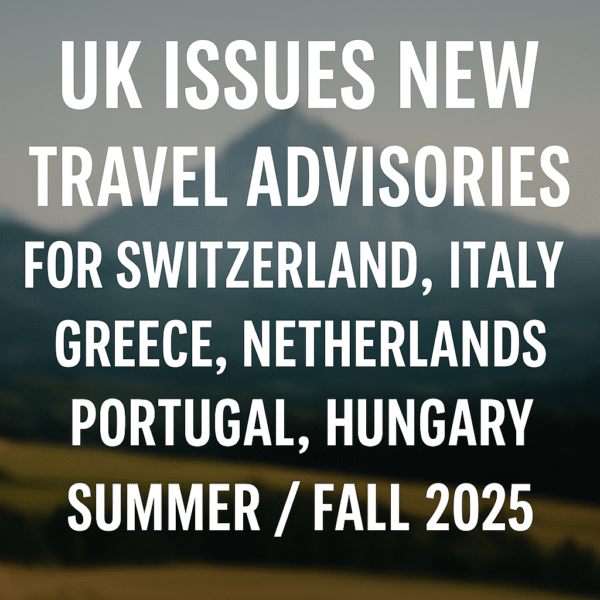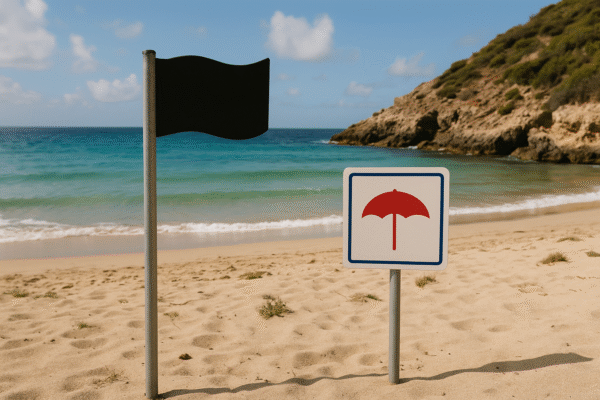La Graciosa, long held as a pristine jewel off the coast of Lanzarote, is experiencing an environmental tipping point. Earlier this month, Ecologistas en Acción, a leading environmental watchdog, issued black flags—its most serious beach pollution designation—to Playa de Caleta de Sebo and Playa de la Francesa. The warning has reignited concerns about the environmental cost of mass tourism in Spain’s popular archipelago.
From Hidden Gem to Warning Sign
La Graciosa might be small in size, but it offers expansive biodiversity and tranquility. With around 720 permanent residents, the island traditionally served as a peaceful escape. Today, however, it draws nearly 300,000 visitors annually, a stark contrast to its modest infrastructure and ecological capacity.
La Graciosa’s influx of tourism, while economically beneficial, has manifested in pollution, waste mismanagement, and pressure on its fragile environment—the black flags offer visible proof.
Caleta de Sebo and Playa de la Francesa: Environmental Barometers
Playa de Caleta de Sebo, nestled by the island’s village, sees excessive boat traffic and frequent littering, according to Ecologistas en Acción. High volumes of tour boats, ferries, and local excursions combine to harm both land and marine habitats.
Meanwhile, Playa de la Francesa has now received its second black flag in a row, with the first issued in 2023. The culprits? Catamaran parties, loud music, and careless waste disposal—trash, plastic, and even bathroom litter are washing ashore.
Environmentalists Sound the Alarm
Protests have erupted across parts of the Canary Islands and mainland Spain, led by environmental groups and frustrated residents. They argue that current tourism volumes are unsustainable, driving irreversible harm to ecosystems and wildlife. This sentiment resonates with growing calls globally for balance between economic gain and environmental stewardship.
Tourism Surge: Growth at What Cost?
Despite the ecological damage, tourism continues to boom. The Instituto Nacional de Estadística (INE) reports that June 2025 saw a record 7.84 million international visitors to the Canary Islands—a 4% year-on-year increase. Spending reached an estimated €1.56 billion (approx. £1.35 billion), marking a robust 8.5% rise in tourism revenue.
The economic benefits are clear—but so are the environmental strains. The La Graciosa case raises pressing questions about how to reconcile conservation with commercial tourism.
Toward Sustainable Tourism: The Path Forward
To preserve the island’s ecological integrity, stakeholders must explore tangible solutions:
- Implement Quota Limits: Capping daily arrivals can reduce pressure on beaches and natural areas.
- Upgrade Infrastructure: More waste bins, better sewage systems, and waste collection from boats can curb contamination.
- Enforce Regulations: Rules around noise pollution, littering, and party behavior should be strictly monitored and enforced.
- Promote Ecotourism: Encourage activities like guided wildlife excursions, nature hikes, and lower-impact beach visits.
- Visitor Education: Inform tourists about environmental sensitivity and promote ‘Leave No Trace’ principles.
Tourism boards and local governments have yet to propose definitive responses, but public and NGO pressure may drive urgent policy action.
A Broader Lesson for Travel Destinations
La Graciosa’s crisis underscores a global lesson: beautiful destinations can become victims of their popularity. Recognizing these stress points early and responsibly managing tourism is vital for long-term sustainability.
As travelers, supporting environmentally conscious operators, choosing low-impact experiences, and respecting natural spaces are small but powerful ways to help preserve delicate ecosystems.
For more travel news like this, keep reading Global Travel Wire
















